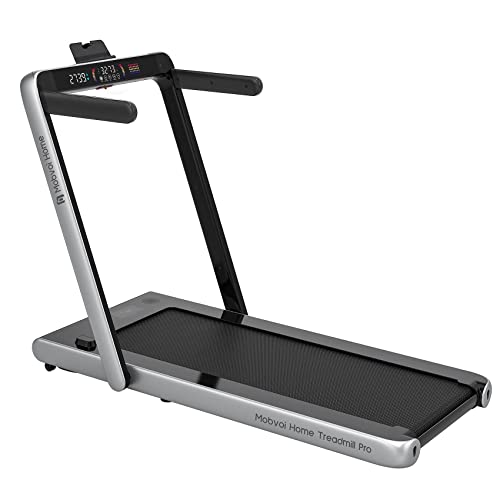The Rise of Non-Electric Running Machines: A Sustainable Approach to Home Fitness
In the last few years, the physical fitness industry has seen a significant shift towards sustainable and energy-efficient devices. Amongst the huge selection of options, non-electric running devices have actually carved out a specific niche on their own, attracting physical fitness lovers who value eco-friendliness, functionality, and cost-effectiveness. This short article checks out the benefits of non-electric running machines, compares them with their electric counterparts, and answers frequently asked concerns about these ingenious physical fitness tools.
What is a Non-Electric Running Machine?
A non-electric running machine, often referred to as a manual treadmill, is a piece of workout equipment that enables users to stroll or run without the need for electricity. Instead of counting on a motor, these makers utilize the user's own physical effort to move the running belt. This function not only makes them eco-friendly however also motivates a more natural and interesting workout experience.
Key Features of Non-Electric Running Machines
| Function | Description |
|---|---|
| Self-Powered | Runs without electricity; users power the treadmill through their movements. |
| Adjustable Incline | A lot of models offer incline settings to enhance workout strength. |
| Compact Design | Typically lighter and more space-efficient than electric treadmills. |
| Low Maintenance | Less electronic elements implies simpler maintenance and durability. |
| Sturdiness | Built with robust products to endure intense usage; typically more rugged than electric models. |
Advantages of Non-Electric Running Machines
1. Eco-Friendly
Being self-powered, non-electric running machines do not add to carbon emissions or energy usage. For environmentally mindful customers, this element lines up with a way of life that focuses on sustainability.
2. Economical
Without the requirement for electricity, users can conserve cash in the long run, both in terms of energy costs and the cost of upkeep. The lack of complicated electronic devices implies less likelihood of breakdown, possibly minimizing repair work.
3. Engagement and Intensity
Due to the manual nature of operation, users engage more muscles throughout the workout. browse around these guys can result in a more intense cardiovascular workout, as the effort is completely determined by the user's rate and force.
4. Adaptability
Non-electric running makers are appropriate for various exercises, from light jogging to high-intensity interval training (HIIT). Furthermore, many designs enable users to change the incline, which can help target various muscle groups and boost exercise effectiveness.
5. Noise-Free Operation
Unlike electric treadmills that might have motors running, non-electric devices operate calmly, making them perfect for home use where sound may be an issue.
Comparison: Non-Electric vs. Electric Running Machines
To supply a clearer understanding, the table listed below compares the primary functions of non-electric and electric running makers:
| Feature | Non-Electric Running Machines | Electric Running Machines |
|---|---|---|
| Source of power | Manual (user-powered) | Electric (motor-driven) |
| Noise Level | Peaceful | Can be loud due to the motor |
| Space Requirement | Typically more compact | Can be bulkier due to the motor |
| User Control | Total control over rate and strength | Speed and incline settings adjusted digitally |
| Upkeep | Low, mainly mechanical checks | Greater, due to electrical components |
| Initial Cost | Normally lower | Usually greater price point |
Choosing the Right Non-Electric Running Machine
When selecting a non-electric running machine, prospective purchasers should consider a number of elements:
Key Considerations
- Material Quality: Look for makers built with durable elements that can hold up against routine usage.
- Weight Capacity: Check the weight limits to guarantee it can accommodate all desired users.
- Adjustable Features: Opt for models that use adjustable slopes and other adjustable settings to enhance workout variety.
- Footprint Size: Ensure the machine fits easily in your designated exercise location.
- User Reviews: Research feedback from other purchasers to gauge reliability and performance.
Popular Non-Electric Running Machines
Here are some well-regarded non-electric running devices readily available in the market:
- AssaultFitness AirRunner: Known for its tough develop and flexibility for various workouts.
- TrueForm Runner: Offers a special curved style for a more natural running experience.
- Woodway 4Front: High on durability and features an unique slat belt for smooth operation.
- XGear Fitness Manual Treadmill: Budget-friendly with adjustable incline options.
- Sunny Health & & Fitness Manual Treadmill: Compact and simple to utilize for novices.
FAQs About Non-Electric Running Machines
Q1: Are non-electric running machines ideal for newbies?
A1: Yes, non-electric running makers can be suitable for novices. Users can control their pace easily and slowly increase their strength as their fitness levels improve.
Q2: How do I maintain a non-electric running machine?
A2: Maintenance usually involves inspecting belt stress, oiling the moving parts, and ensuring that all components are protected. This is usually less demanding than keeping electric treadmills.
Q3: Can I perform high-intensity exercises on a non-electric running machine?
A3: Absolutely! Non-electric devices are perfect for high-intensity workouts, as they rely exclusively on the user's effort, which can easily be increase.
Q4: Are non-electric running machines appropriate for all body types?
A4: Most non-electric running devices can accommodate a variety of body types, but it's important to check the specific weight limit and dimensions of each design.
Q5: Do non-electric running devices need any setup?
A5: Most non-electric running machines require minimal setup, and some may be ready to use ideal out of package.
Non-electric running machines provide an engaging option to standard electric treadmills, marrying sustainability with reliable workout options. As fitness lovers end up being more conscious of their ecological effect, these devices are most likely to increase in popularity. With their myriad advantages and varied alternatives, non-electric running machines can seamlessly fit into a health-oriented way of life, making them a rewarding consideration for anyone aiming to enhance their fitness journey.

